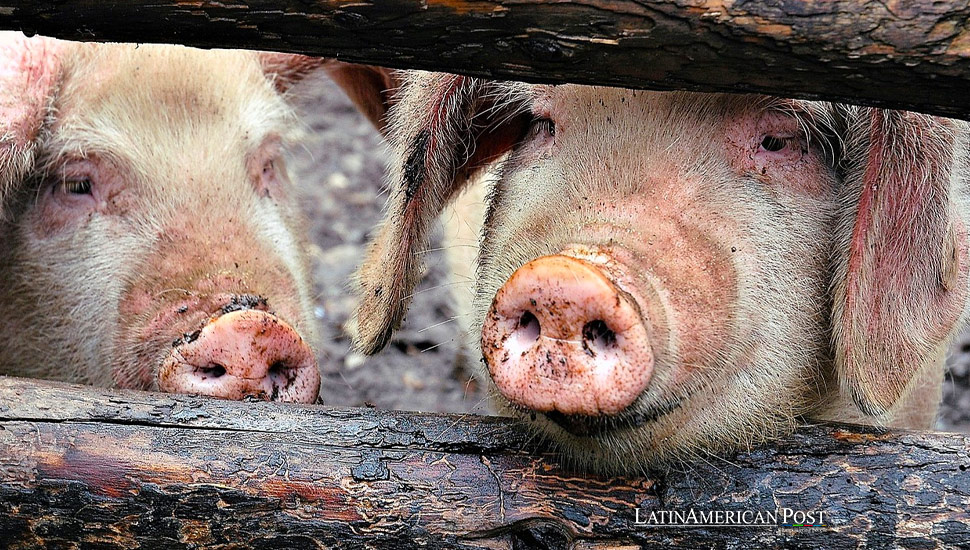China’s Possible Move Against EU Pork Imports Could Be a Mixed Blessing for Brazil

Analysts and industry sources said China’s potential imposition of anti-dumping measures on European Union pork imports could benefit Brazilian exporters but also impact the country’s ability to compete elsewhere.
China’s potential imposition of anti-dumping measures on European Union (EU) pork imports could significantly affect global trade dynamics, particularly affecting Brazil. As one of the top three pork suppliers to China, Brazil stands to gain from increased Chinese demand if the measures go through. However, this potential benefit comes with its own challenges and complexities, as noted by analysts and industry insiders in interviews with Reuters.
As reported by state-backed Chinese media, Chinese companies’ request for an anti-dumping investigation into EU pork imports could open up new opportunities for Brazilian exporters. If China imposes these measures, Brazil could see a surge in demand for its pork. This is particularly pertinent given Brazil’s status as a major supplier to the Chinese market, alongside the United States and the European Union.
However, Wagner Yanaguizawa, an analyst at Rabobank, highlighted the potential drawbacks of this scenario. While Brazilian exporters might initially benefit from increased Chinese demand, they could face intensified competition in other key markets. “Brazil could face more competition in the Philippines, Japan, South Korea, and the United Kingdom,” Yanaguizawa said. Currently served by the EU, these markets might become more competitive if European suppliers redirect their exports due to losing access to China.
Shifting Market Dynamics
According to Brazilian trade data, the Philippines has emerged as Brazil’s second-largest pork meat export market this year, followed by China, with sales volumes increasing by 85% through May. “These countries would most likely shift part of their demand to the EU because there would be an excess of meat [there],” Yanaguizawa explained, emphasizing the logistical advantages that the EU holds over Brazil.
The Brazilian meat lobby ABPA echoed these sentiments, noting that market dynamics would naturally adjust to fill any gaps left by shifting export patterns. Brazilian pork processors operate at 85%-90% capacity, indicating room to increase supplies. However, an industry source cautioned that Chinese restrictions on EU pork could result in European suppliers turning “aggressively” to markets currently dominated by Brazil. This shift could lead to a global oversupply if China further reduces pork imports.
China’s domestic pork production has been recovering from the devastating effects of African Swine Fever, which previously decimated its pig population. This recovery has implications for global trade. “I believe China will demand less than 2 million tons per year,” said an industry source, adding that China’s pork imports had already dropped to 2.6 million tonnes last year from a peak of 5.6 million tons in 2020.
Beijing’s investigation into EU pork imports primarily targets Spain, the Netherlands, and Denmark. Should irregularities be found, these countries must find alternative product markets. “If irregularities are found, European sales to the world’s largest pork import market will be forced to look for other major destinations,” consultancy Datagro stated.
Brazil’s Position in Global Trade
Brazil could benefit from its strong trade relations with China, but this advantage may come at the cost of its market share in other regions. The Philippines, which currently accounts for 13% of Brazil’s pork exports, is a prime example of a market where exports might lag due to increased competition from European suppliers.
Despite the potential short-term gains, the long-term implications for Brazil’s pork industry are uncertain. The global pork market is highly interconnected, and shifts in one region can have ripple effects worldwide. As such, Brazilian exporters and policymakers must navigate these changes carefully to maintain their competitive edge.
Also read: Mexico and U.S. Enhance Security for Avocado and Mango Inspectors
While China’s possible imposition of anti-dumping measures on EU pork imports could provide an immediate boost to Brazilian pork exports, it also presents significant challenges. Increased competition in other markets and the potential for global oversupply are factors that Brazilian producers must consider. As the situation evolves, Brazil’s ability to adapt to these new market dynamics will be crucial in determining the overall impact on its pork industry.





